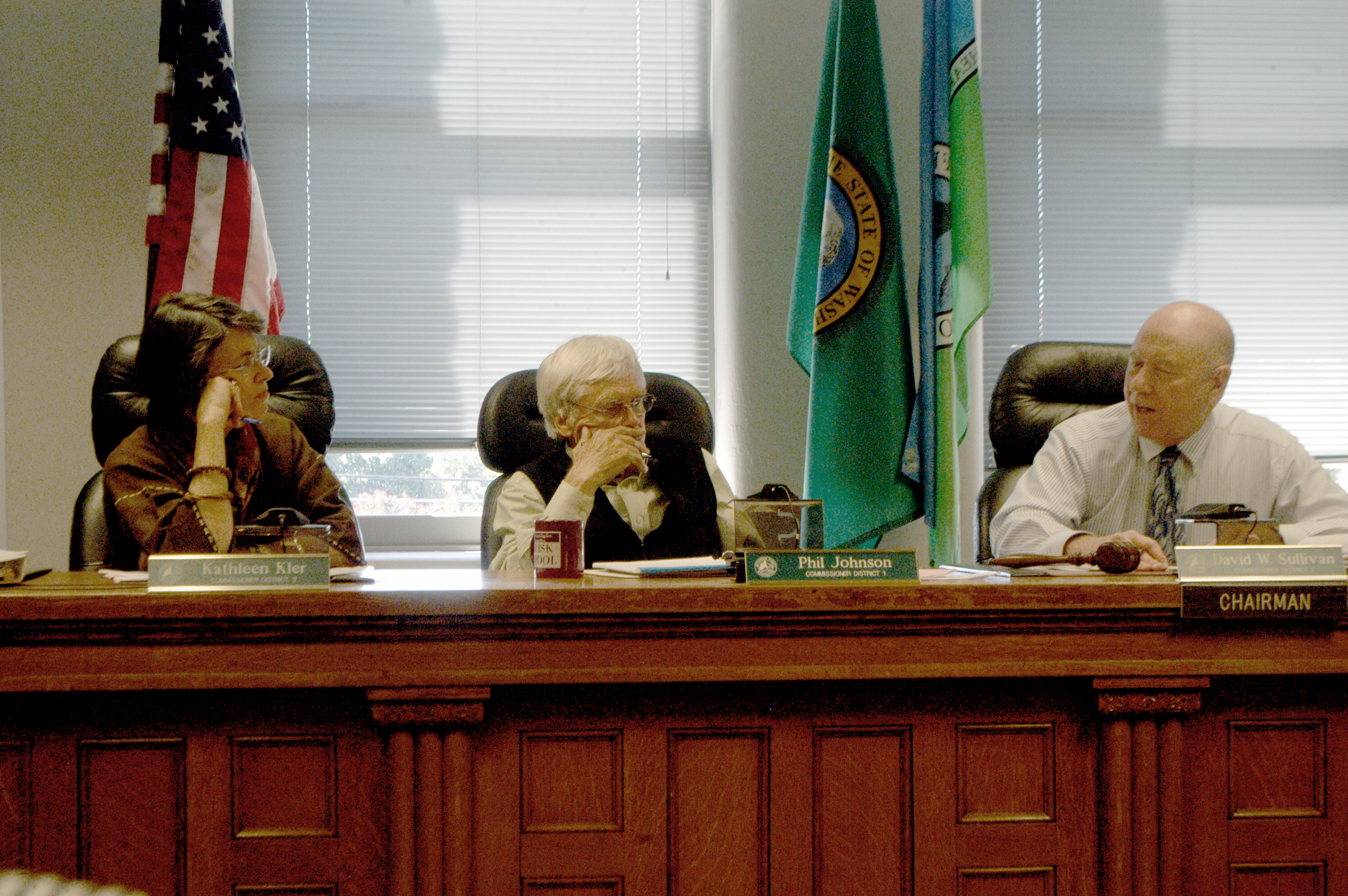PORT TOWNSEND — Jefferson County’s moratorium on recreational marijuana businesses has been lifted, with a new set of rules officially in place for pot entrepreneurs.
During their regular meeting Monday, the three Jefferson County commissioners voted 2-to-1, Commissioner David Sullivan dissenting, to enact an ordinance outlining the regulations recreational marijuana business owners must adhere to, breaking down allowable locales by type and location.
For instance, such businesses will be prohibited at all golf facilities and outdoor gun ranges, while they are allowable in most bed-and-breakfast locations.
The most tolerant regulation areas for marijuana businesses are in designated rural village areas, which are Brinnon and Quilcene.
The new rules include a list of specific “performance standards,” such as landscaping, setbacks and security.
The ordinance was crafted by the Department of Community Development.
The ordinance took effect immediately upon passage and repeals a moratorium on marijuana growing operations that had been in place for 10 months and was set to expire Thursday.
The commissioners could have extended the moratorium to allow further study of the issue or simply allowed it to lapse.
Instead, Commissioners Phil Johnson and Kathleen Kler voted in favor of the new rules.
Sullivan opposed them, as he has during past meetings.
“There are reasons to be concerned about marijuana, but I don’t think this [ordinance] addresses them,” Sullivan said before the vote, noting he believed that adopting the ordinance would be more harmful than extending the moratorium.
“As I look at this, I am disappointed that we haven’t taken an approach that would deal with the impacts of sales in general, separate from the issue of marijuana, because I think that really clouds it.”
After the approval of statewide Initiative 502 legalizing recreational marijuana in 2012, Jefferson County originally dealt with cannabis like any other agricultural product.
But public controversy led to the institution of a six-month moratorium Aug. 11.
When that moratorium was set to expire, the DCD requested a four-month extension because it had not developed a policy.
“And now we are feeling pressure because 10 months hasn’t been enough to really deal with it,” Sullivan said.
“I find myself looking at a different type of moratorium, perhaps on just marijuana businesses, but having it narrow down to limiting those that have a larger-size building that are not set back far enough and whatever other conditions you think we might need to add.”
“That is what we had attempted to do” with the ordinance, Kler responded. “The problem is that this is predictive. We don’t know all of the impacts, and that is a lot foggier.
“How we can be fair and balanced for the pioneers, the people that are out there taking the most risks?”
During the meeting, Sullivan proposed an amendment to the moratorium that would have allowed smaller-scale operations to proceed while the moratorium remained in effect for businesses larger than 10,890 square feet.
“In doing this code, there is an unfairness to it, and that bothers me,” Sullivan said. “I find myself [with] sympathy for wanting size restrictions [and] some setback restrictions, and wishing we would deal with those impacts rather than dealing with this as a marijuana issue. In fact, I would be willing to consider extending the moratorium or changing the moratorium and dealing with the impacts.”
That option was rejected by Johnson and Kler because any substantial changes to the rules would require a public hearing and delay action.
________
Sequim-Dungeness Valley Editor Chris McDaniel can be reached at 360-681-2390, ext. 5052, or cmcdaniel@peninsuladailynews.com.
